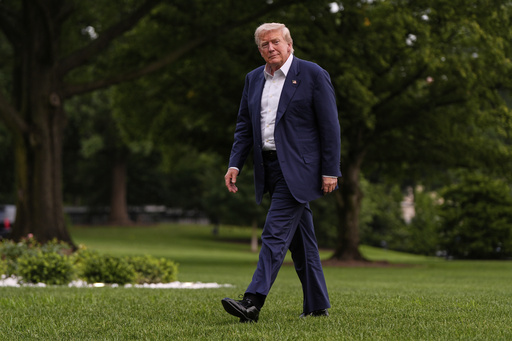In a strategic move to modernize the American healthcare system, the Trump administration has introduced a groundbreaking initiative designed to streamline the sharing of personal health data, promising enhanced accessibility to medical records and improved wellness monitoring. This new program will encompass major tech enterprises such as Google, Amazon, and Apple, alongside healthcare titans like UnitedHealth Group and CVS Health, in a collaborative effort to integrate patient data into a unified system.
Key objectives of this initiative include managing diabetes and weight, leveraging conversational artificial intelligence to assist patients, and deploying digital tools like QR codes for patient registration and medication tracking. Emphasizing the need for this transformation, President Donald Trump highlighted the inefficiencies of current systems during a White House event, describing them as outdated, costly, and incompatible. This announcement marks a significant advancement towards digitizing healthcare.
The program fosters a balance between patient convenience and data privacy. While offering more streamlined access to health records, it raises ethical and legal concerns regarding the protection of individual health information. Patient participation in the program will require explicit consent, ensuring data security, according to officials from the Centers for Medicare and Medicaid Services, who will oversee the system. Such advancements will eliminate the traditional hurdles faced when retrieving personal health records, often plagued by outdated methods like faxing documents.
Dr. Mehmet Oz, overseeing the Centers for Medicare and Medicaid Services, assured attendees of the remarkable progress this will bring in consumer access to their health records. Additionally, the weight loss and fitness subscription app, Noom, is set to access medical records once the system goes live early next year. The app will utilize this data for AI-driven analyses to facilitate user weight management, as explained by CEO Geoff Cook. This integration will also allow apps to gain insights from competitors, enhancing user experiences across platforms.
The seamless availability of health data, like dietary habits and exercise routines, will significantly aid physicians in managing chronic conditions such as obesity, asserted Dr. Tomislav Mihaljevic, CEO of the Cleveland Clinic. This effort is anticipated to eliminate barriers that currently hinder timely diagnosis and treatment due to scattered medical records across diverse regions.
Simultaneously, CMS plans to recommend a selection of health apps through Medicare.gov, aiding chronic disease management and enabling informed choices regarding healthcare providers and insurance plans. However, digital privacy experts express concerns over data security in this digitally interconnected system. Despite this, the federal government has not heavily regulated health applications or telehealth services, prompting further criticism from advocates like Jeffrey Chester at the Center for Digital Democracy.
Health and Human Services Secretary Robert F. Kennedy Jr. advocates for integrating technology into healthcare, including wearable fitness devices and telehealth services. He has voiced a strong interest in gathering data from medical records to explore areas like autism and vaccine safety research. This initiative aligns with Kennedy’s vision, placing individuals with health tech experience in pivotal agency roles.
The strategy involves a vast pool of information already maintained by CMS, covering over 140 million Medicare and Medicaid beneficiaries. A recent agreement saw CMS sharing its expansive database, including sensitive personal data, with deportation authorities. Thus, the latest initiative is set to further enrich this information well for both government and private tech entities. Medical records encapsulate intimate details, including physician consultations and sensitive health histories.
Chester warns that the new program presents a potential for exploiting personal health information. Previously, the Trump administration’s attempt to initiate a less comprehensive electronic record system in 2018 lacked traction due to minimal major tech company involvement. This time, however, widespread participation from these companies signals a stronger collaborative commitment to revolutionizing healthcare data handling.


